The Beginning of Hemp in America: How It Formed U.S. Farming
Introduction
Many individuals today know about the advantages of hemp, yet hardly any realize that hemp has profound roots in American history. It was one of the main harvests developed by Settlers in the New World. In this blog, we'll investigate how hemp grew and flourished in the USA, addressing key inquiries that uncover its rich history.
Let’s dive into the story of hemp’s arrival and cultivation in America through a series of intriguing questions and answers.1. What is Hemp, and Why Was It Important to Early Settlers?

Hemp is a very useful plant. It has strong fibers, seeds full of oil, and even some health benefits. Unlike cannabis, which can make you feel “high,” hemp has very little THC, the substance responsible for those effects. Early American settlers found hemp incredibly valuable. They used it to make ropes, sails, and clothing. In early America, settlers found hemp very useful. They used it to make ropes, sails, and clothes.
Why was it important? Hemp played a crucial role in supporting the colonial economy. It provided essential materials for building ships, making clothes, and producing paper. Its durability and strength made it vital for the growing settlements.
2. When Did Hemp First Arrive in America?

Hemp was introduced to America as early as 1611, when settlers in Port Comfort, Virginia, began growing it as a valuable crop. Hemp was such an essential resource that some Colonial laws required farmers to cultivate it. Over time, its cultivation spread across the colonies, playing a significant role in agriculture.
3. How Was Hemp Used in Colonial America?

Hemp came to America as early as 1611, brought by settlers in Port Comfort, Virginia, who saw it as a valuable crop. Over time, hemp farming spread throughout the colonies. During this period, hemp was mainly used for practical purposes. It was processed into rope, sails for ships, and fabric, which were essential for the shipping industry.
Hemp was also used to make paper for significant documents, including the Declaration of Independence. Additionally, settlers found it helpful for treating ailments like pain and swelling. These varied uses made hemp an essential resource in early America, supporting both the economy and daily life.
4. Why Did Early American Farmers Cultivate Hemp?

In the early days of America, having strong, reliable materials was essential, especially for tasks like shipbuilding and daily chores. Hemp provided durable sails, strong ropes, and sturdy fabric, making it one of the most valuable plants. Governments encouraged farmers to grow hemp because of its many practical uses. Hemp was the hidden hero of early American life, helping to meet essential needs in daily and commercial life.
5. Did early American farmers need special permission to grow hemp?

Hemp was a highly valued plant that contributed to the construction of ships, the making of clothing, and more. To ensure enough hemp, some states, including Virginia, Massachusetts, and Connecticut, established laws requiring farmers to grow it. This highlights hemp’s significance in the early American economy, where it supported shipbuilding, provided strong sails and ropes, and supplied materials for clothing.
6. How Did Hemp Farming Spread Across the United States?

7. How Did Hemp Impact the Early American Economy and Industry?

Hemp’s versatility made it an essential crop for both household and military purposes. Its strong fibers were critical in shipbuilding, and its oil was used in lamps and as a lubricant. Growing hemp provided small farmers with a reliable crop, supporting the growth of early American trade and contributing to the nation's economic development.
8. Why Did Hemp Farming Decline in the U.S.?

Once a crucial crop, hemp production began to decline in the late 19th century due to several factors:
Rise of Cotton: Cotton became the primary textile crop in the southern U.S., replacing hemp due to its ease of cultivation and profitability.
Industrial Revolution: New synthetic fibers reduced the demand for hemp, as these man-made materials were cheaper and required less labor.
Government Regulations: The 1937 Cannabis Tax Act imposed taxes and restrictions on hemp farming, discouraging its cultivation. Since the law did not distinguish between hemp and cannabis, it significantly hindered the hemp industry in the U.S.
9. What Were Some Early U.S. Regulations Connected with Hemp Cultivation?

Early settlements had laws promoting and in some cases requiring, hemp cultivation. However, the 20th-century Cannabis Tax Act of 1937 introduced high taxes and restrictions, making it challenging for most farmers to grow hemp. This legislation, which failed to differentiate between hemp and cannabis, nearly ended hemp farming in the United States.
10. Is Hemp Getting back in the game in the U.S. Today?

Hemp is experiencing a revival in the U.S. The 2018 Farm Bill allowed farmers to cultivate industrial hemp due to its low THC levels. Today, hemp is used in numerous products, including textiles, food, and CBD oils, showing how valuable and versatile it remains to the modern economy.
11. How Does Hemp Differ from Cannabis, and Why Is This Important?

Although hemp and cannabis come from similar plants, they have different chemical compositions. Hemp contains less than 0.3% THC, the compound that causes psychoactive effects, while cannabis has significantly higher levels. Farmers grow hemp primarily for industrial purposes, while cannabis is often used for medicinal or recreational reasons. This distinction is important because it led lawmakers to legalize industrial hemp in the 2018 Farm Bill.
Conclusion
Hemp’s journey in America is a story of agricultural innovation, legal challenges, and modern renewal. Since it arrived in Port Comfort, hemp has played a significant role in shaping the nation’s development, from its early days in the colonies to its resurgence today.

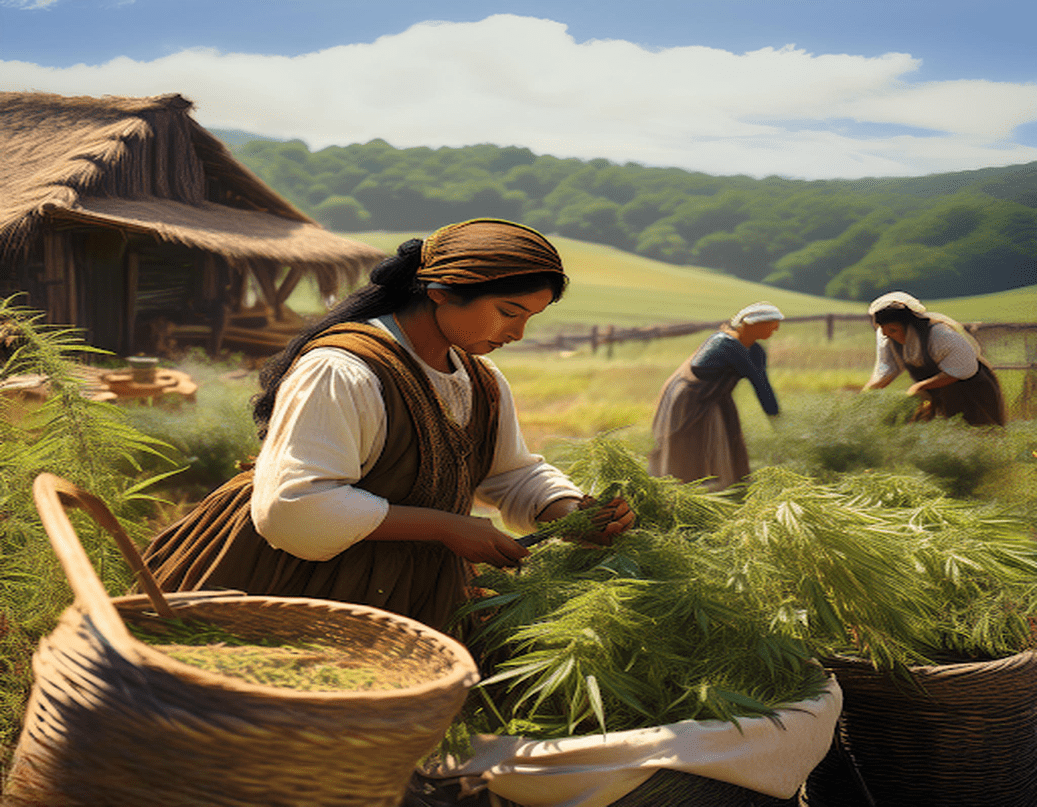
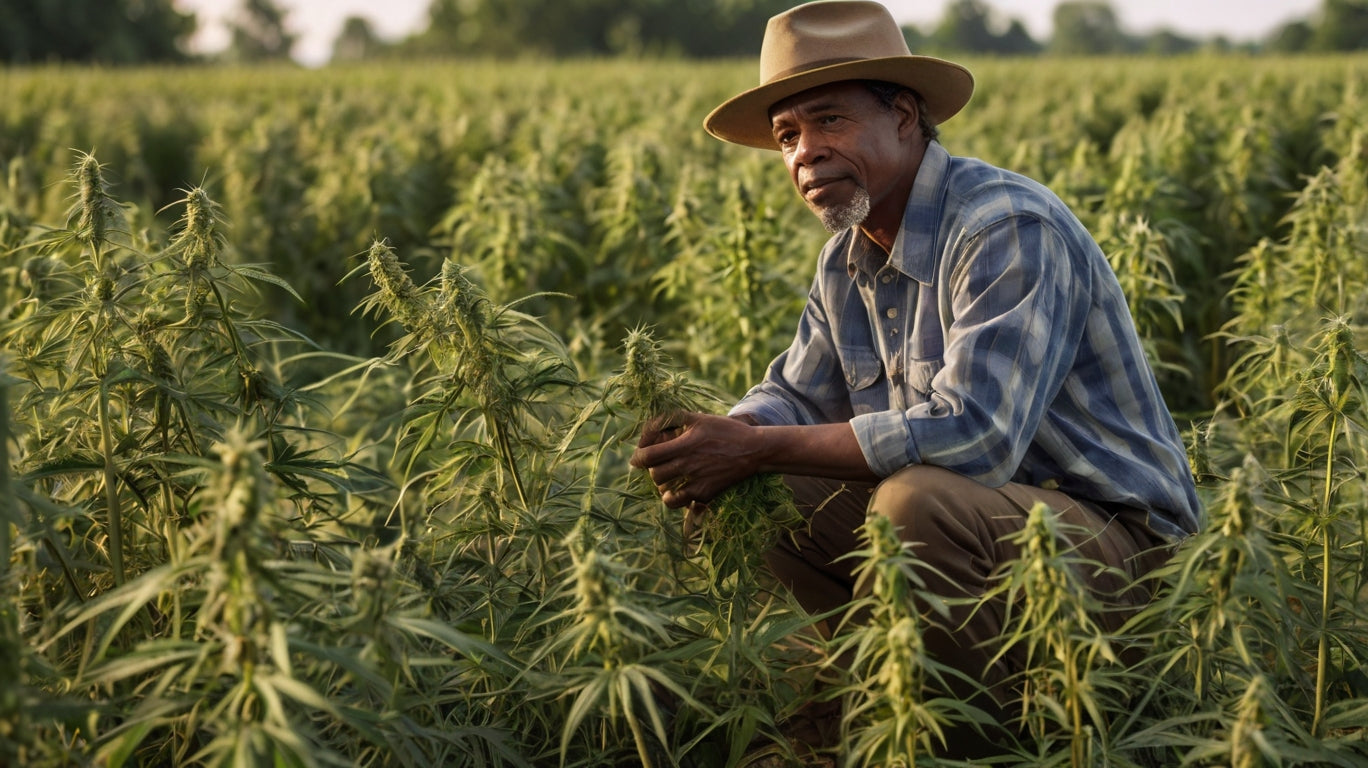
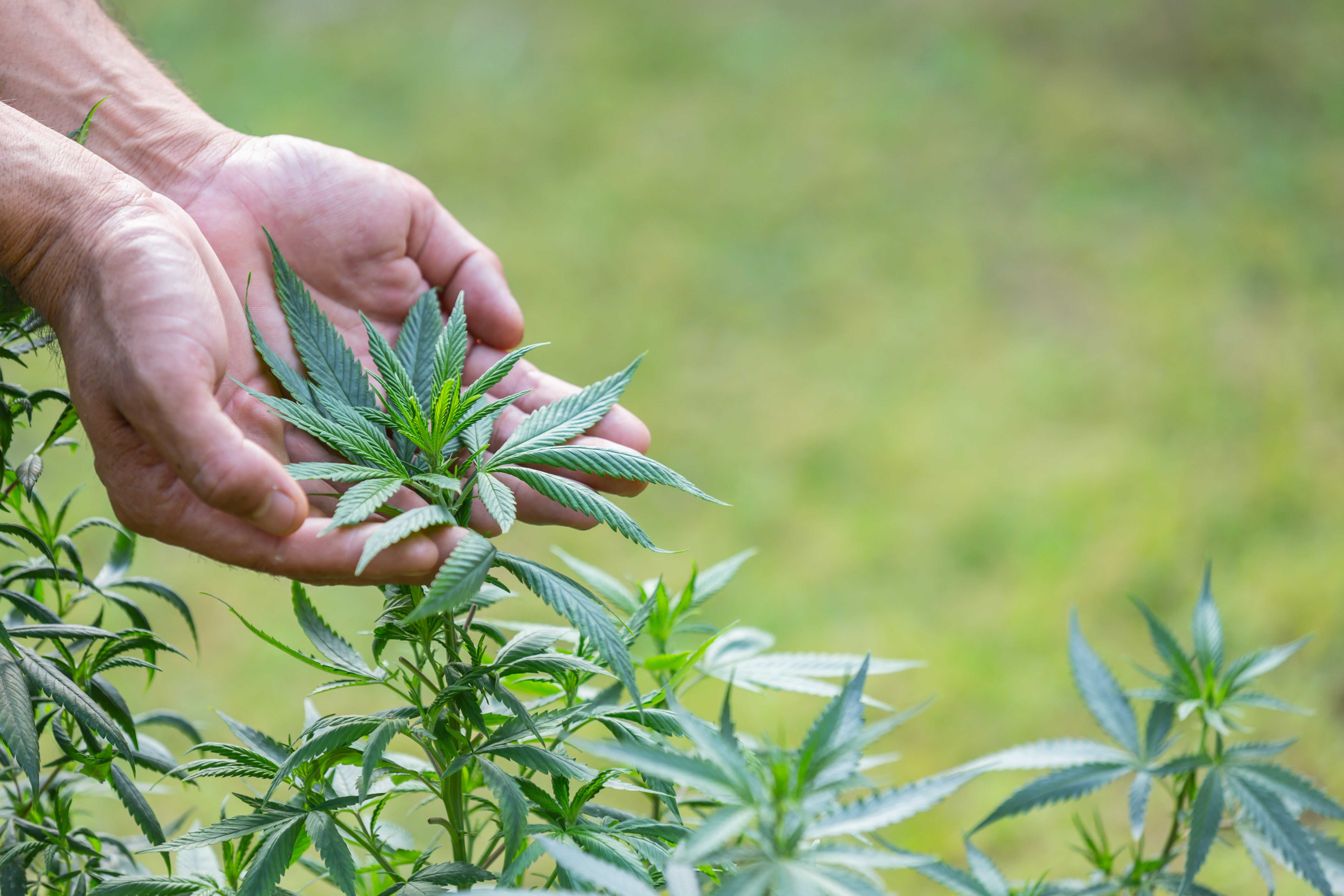
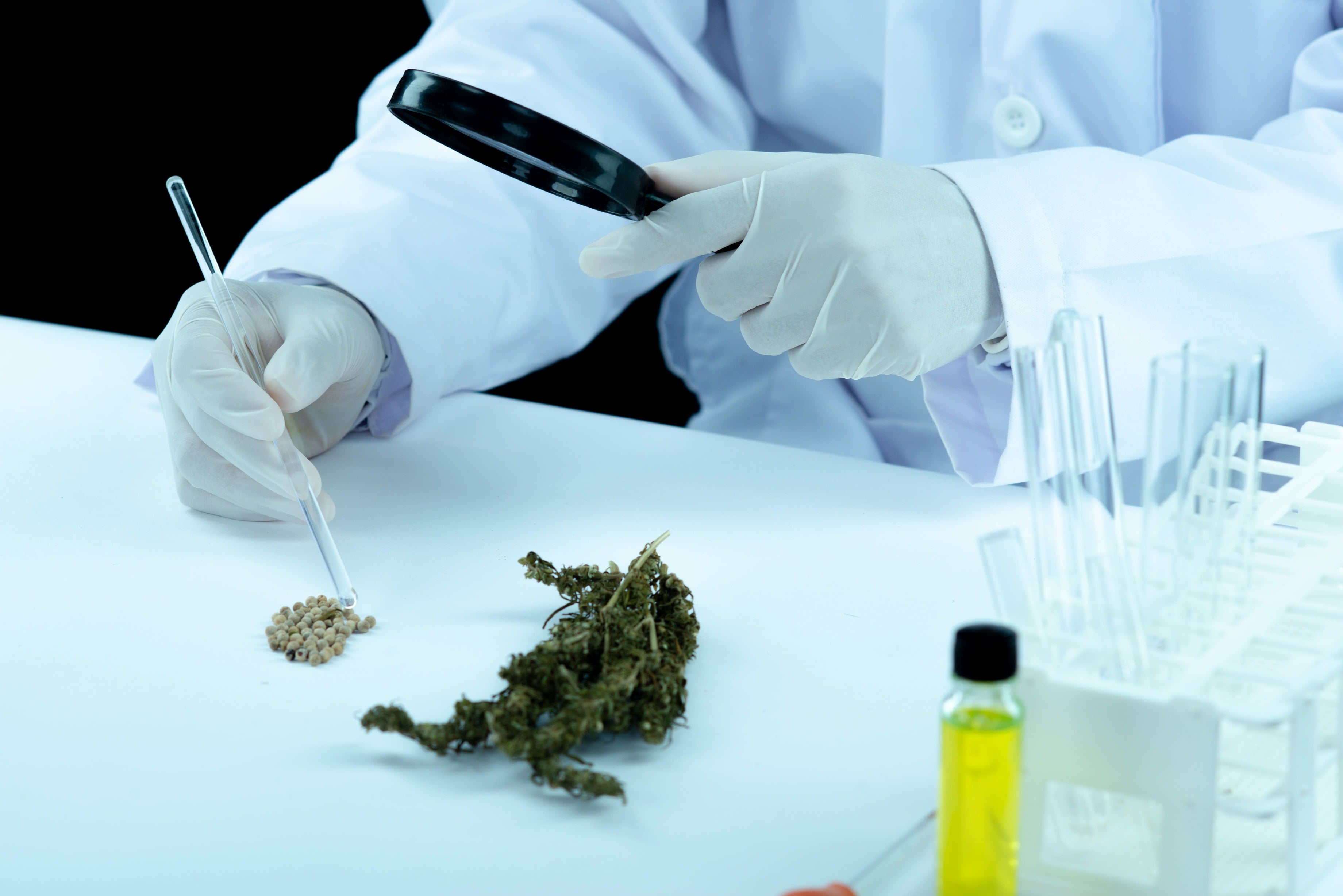
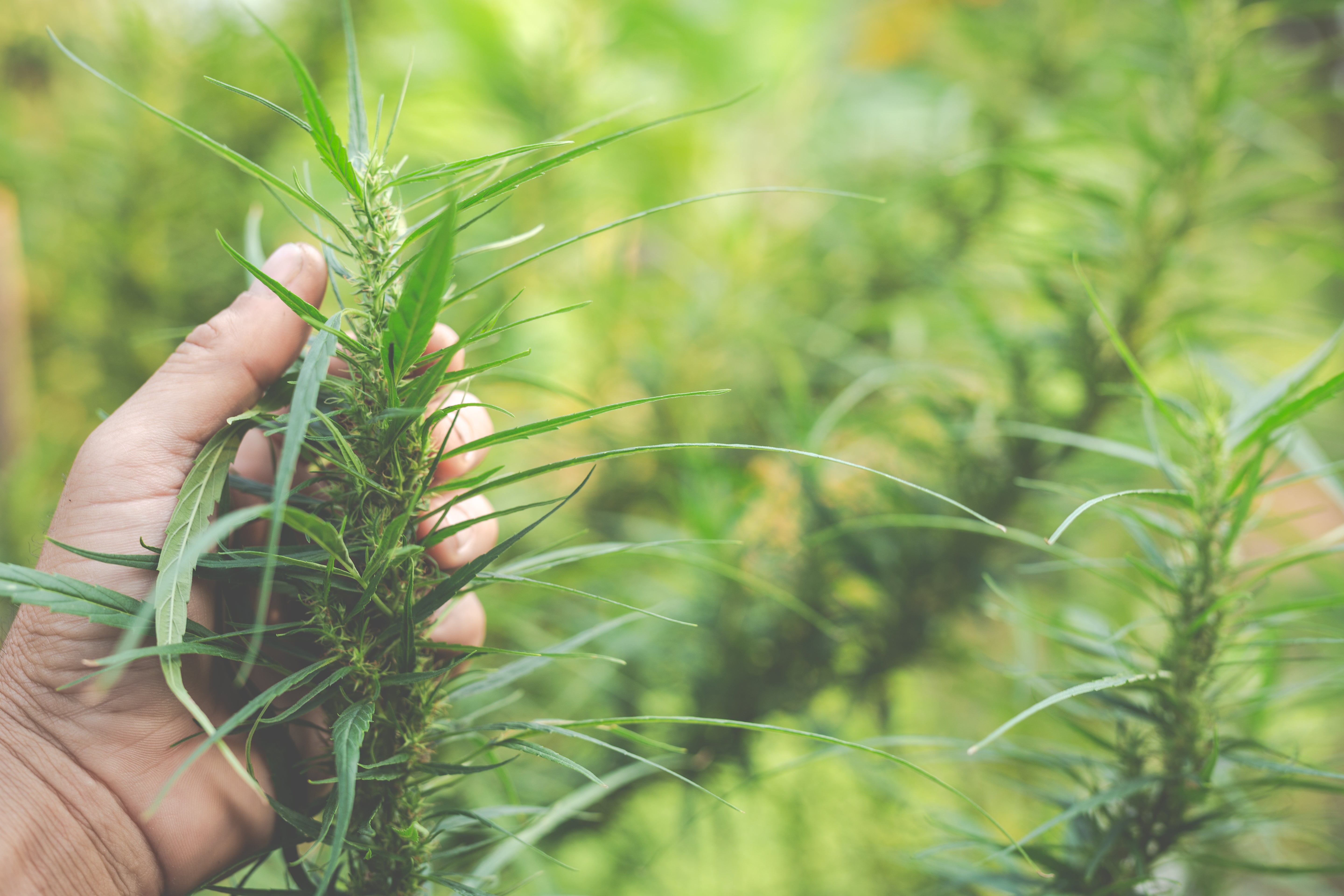
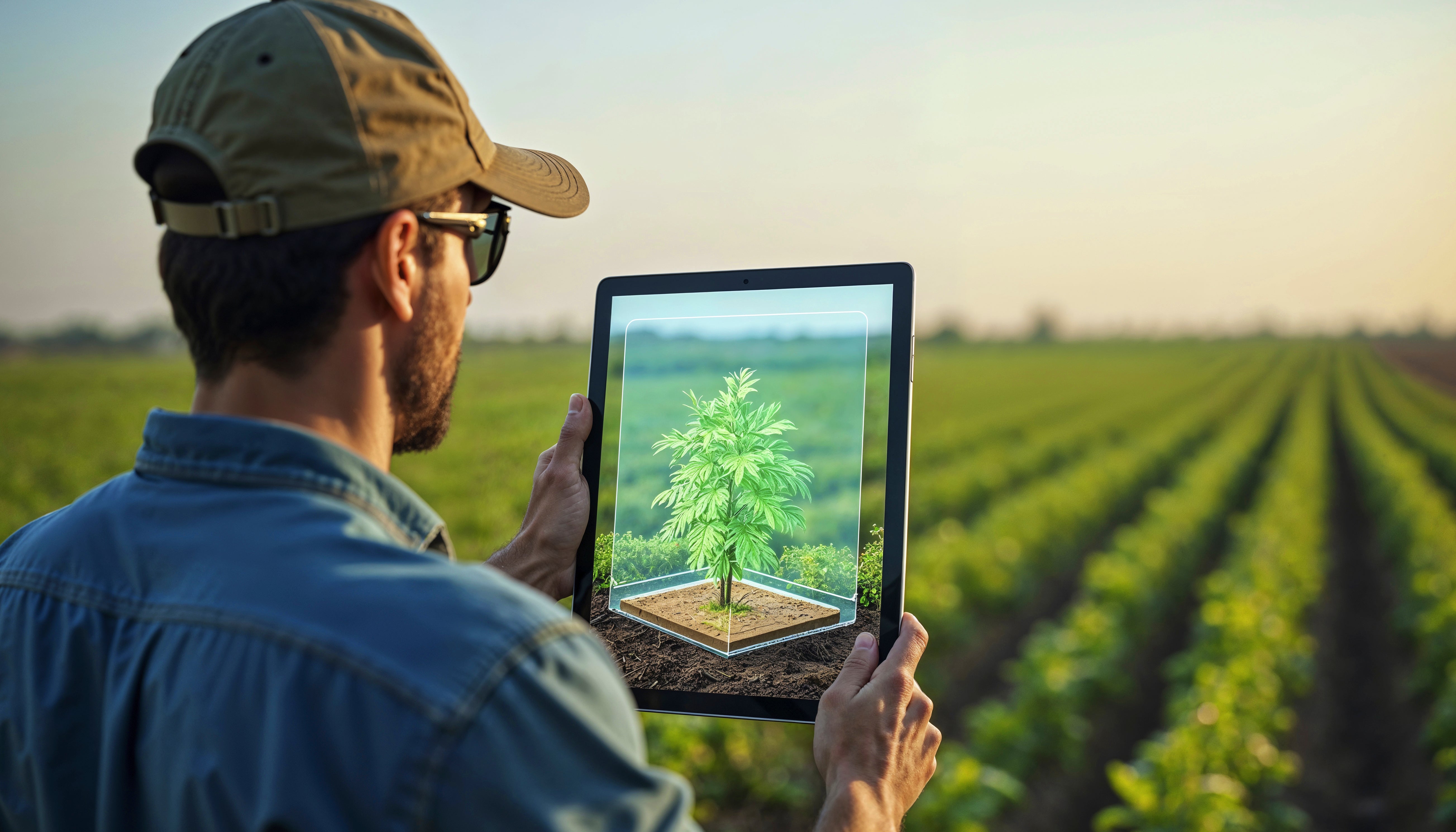
Share:
Industrial Hemp: Foundation of Colonial America
New Hemp Farming Laws: What You Need to Know